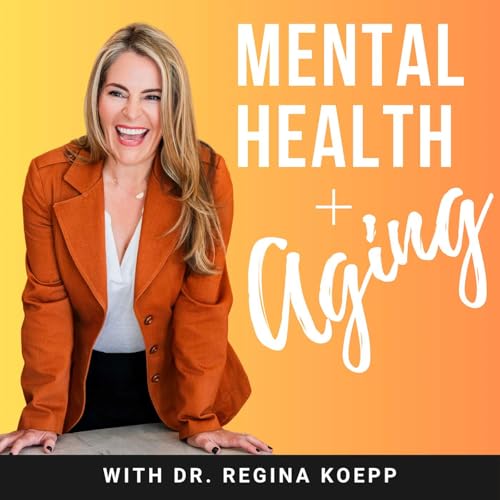
#130 - Link Between Trauma and Dementia: Can Unresolved Trauma Increase Dementia Risk?
No se pudo agregar al carrito
Add to Cart failed.
Error al Agregar a Lista de Deseos.
Error al eliminar de la lista de deseos.
Error al añadir a tu biblioteca
Error al seguir el podcast
Error al dejar de seguir el podcast
-
Narrado por:
-
De:
Can Unresolved Trauma Increase Dementia Risk?
Trauma doesn’t just leave emotional scars—it can change the brain. And when post-traumatic stress goes untreated, the risk for dementia later in life rises.
In this episode of my mental health and dementia series, I explore how trauma and PTSD intersect with brain health. Drawing from decades of research and my years working with older veterans, I break down why unresolved trauma increases vulnerability to dementia disorders and what clinicians can do to help.
This conversation isn’t just about understanding risk—it’s about hope. Trauma treatment works at any age, and healing now doesn’t only restore quality of life today, it also protects the brain for tomorrow.
3 Key Takeaways from This Episode
1⃣ Trauma raises dementia risk.
Landmark studies show veterans with PTSD have double the risk of dementia, and depression or anxiety tied to trauma can increase dementia risk even decades later.
2⃣ The body keeps the score.
Trauma heightens cortisol and inflammation, which damage the heart and brain. What’s bad for the heart is bad for the brain.
3⃣ Treatment protects the brain.
Trauma therapy in older adulthood restores quality of life now and strengthens brain health and autonomy for the future.
What You’ll Learn in This Episode:
- Why PTSD symptoms often reemerge in older adulthood, especially after retirement, health changes, or loss.
- The science behind how trauma affects brain physiology—cortisol, inflammation, and cardiovascular health—and why that matters for dementia risk.
- Landmark studies linking PTSD, depression, anxiety, and racism-related stress to dementia.
- Why trauma often goes undetected in older adults—and how ageism can stop clinicians from asking the right questions.
- Five trauma-informed strategies to support older adults, reduce suffering now, and protect brain health for the future.
Click here to see the show notes and get all resources mentioned in this episode.
Download your free Trauma Informed Care Guide here
Have a topic idea? Send us a text.
PROFESSIONALS: Grab your free guide to working with older adults here
Attention Social Workers, Therapists, Counselors, Psychologists, Aging Life Care Experts... Click here to get Continuing Education Credits


